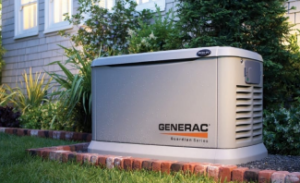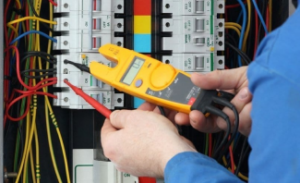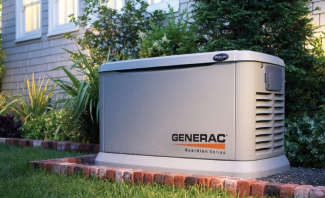Local Generator Troubleshooting Guide: Quick Fixes for Reliable Power
Don’t get caught in the dark or sweltering heat – locals need their generators to keep running smoothly. Whether it’s a storm knocking out the power or a hot summer night calling for some AC, your local generator is a lifeline for energy. With unpredictable weather and environmental conditions on the rise, a dependable power supply is more essential than ever. But what happens when you encounter a problem with your generator? In this blog post, we’ve got you covered with local generator troubleshooting guide to help you quickly identify and solve common issues. Get ready to tackle any generator problem with ease!
Common Generator Problems: Troubleshooting Tips for Reliable Power
When the lights go out or you’re off the grid, generators are vital for keeping the electricity flowing. But like any machine, they can run into issues that affect their performance and dependability. To keep your generator running smoothly, it’s important to know the most common problems and how to fix them. In this article, we’ll cover troubleshooting tips for five common generator problems, so you can always count on reliable power.
- Trouble Starting?: If your generator won’t start, it’s likely due to old fuel or a clogged carburetor. Start by replacing stale fuel with fresh gas. If that doesn’t do the trick, cleaning the carburetor can help solve the problem.
- Lackluster Power Output?: If your generator isn’t producing enough power, it could be caused by a clogged air filter, faulty spark plugs, or a malfunctioning alternator. Improving performance can be as simple as cleaning or replacing the air filter and spark plugs. However, if the alternator is to blame, professional repair may be needed.

Generator Maintenance and Repairing - Avoid Overheating!: Generators that overheat can cause serious damage to the engine and components. The main culprit is often a blocked air intake or outflow duct. Regularly check and clear your generator’s ventilation system to prevent overheating hazards.
- Don’t Ignore Oil Leaks!: Leaking oil poses risks like slippery surfaces and smoke-filled engines. Faulty oil filters, loose bolts, or worn-out seals are typically to blame. Promptly addressing oil leaks can protect your generator from further damage and ensure safer operation.
- Battery Woes?: When your generator’s battery fails, it won’t start at all. Lack of maintenance, long periods of inactivity, or extreme weather conditions can lead to battery failure. Regular inspection, maintenance, and replacement are essential to ensure your generator is always ready to go.
Understanding common generator problems is key to keeping your power supply reliable. Use these tips to identify and fix issues before they escalate. If you’re unsure about any repairs, always consult a professional to prevent accidents and additional equipment damage. Keep up with maintenance and servicing, and your generator will keep you powered for years to come.
Is Your Generator Overheating? Here’s How to Keep it Cool.
Don’t let overheating damage your generator! Learn the signs of a problem and how to prevent it.
Signs of Generator Overheating:
- Reduced Performance: If your generator is slowing down and producing less power than usual, it may be overheating.
- Loud Noises: Strange sounds like vibrating, rumbling, or grinding could be indicators of an overheating issue.
- Presence of Smoke: Smoke or a burnt smell coming from your generator is a clear indication of overheating and potential damage.
- Higher Than Usual Temperature: If your generator feels unusually hot to the touch, it’s a red flag for overheating.
Tips to Keep Your Generator Cool:
- Ensure Proper Air Circulation: Store and operate your generator in a well-ventilated area and keep the air inlets and outlets clean and unobstructed.
- Regularly Inspect and Clean: Regularly test your generator and keep air filters, radiators, and coolant compartments in good condition to prevent blockages and maintain smooth operation.
- Use Lubrication: Reduce friction and heat generation by properly lubricating the generator’s moving parts.
By following these tips and recognizing the warning signs, you can protect your generator from overheating and enjoy reliable power generation for years to come.
Optimize Your Generator’s Performance with Proper Fuel Supply and Oil Mix
Don’t underestimate the importance of checking your generator’s fuel supply and ensuring the right oil-to-gas ratio. These crucial steps are essential for guaranteeing optimal performance and preventing potential damage.
To start, make sure your fuel tank is filled with clean and uncontaminated fuel. No water, dirt, or rust should be present. Additionally, check the oil level and add the correct amount to achieve the proper oil-to-gas ratio. This will keep your generator’s internal parts lubricated and prevent overheating.
Using the wrong oil-to-gas ratio can have severe consequences, including a shorter lifespan for your generator and higher operating costs. It’s crucial to follow the manufacturer’s recommendations for fuel type, oil type, and ratio specific to your generator model, avoiding engine failure, spark plug damage, or permanent harm.
Regular checks are highly recommended, especially before and after long periods of inactivity or extended use. Neglecting these maintenance tasks can compromise your generator’s performance, leading to power outages and safety hazards.
By following the manufacturer’s instructions and conducting regular maintenance, you can rely on your generator to run efficiently and reliably whenever you need it.
Troubleshooting Guide: Generator Running but No Power – How to Fix It
Don’t panic if your generator is running but there’s no power output. We have some solutions that can help you fix the issue quickly and easily.
Start by checking the circuit breakers on your generator. If any of them have tripped, simply resetting them may solve the problem. If that doesn’t work, take a look at the fuel and oil levels. Low levels can cause the engine to shut down, so ensure they’re at the right level.
Next, inspect the air filter. If it’s dirty, clean or replace it to improve air flow and prevent a decrease in power output. Additionally, make sure the spark plug is clean and properly gapped. Dirty or defective spark plugs can also cause engine problems.
If none of these steps work, there could be more serious issues like a faulty alternator or voltage regulator. In such cases, it’s best to seek professional generator service from a technician who can diagnose and fix the problem.
Remember, regular maintenance and upkeep of your generator can prevent these issues from happening in the first place. Keep the fuel tank and oil reservoir full, clean the air filter regularly, and replace parts as needed. This will ensure your generator runs smoothly and reliably for years to come.
Troubleshooting Electrical Problems with Your Generator: A Comprehensive Guide
To effectively troubleshoot electrical problems with your generator, it’s crucial to have a strong understanding of the different components that make up its electrical system. By doing so, you’ll be able to pinpoint the root cause of any issues and take the necessary steps to fix them.
Among the most common electrical problems encountered with generators is a lack of power output. This can be attributed to various factors, such as a faulty voltage regulator, a worn-out rotor or stator, or a clogged air filter. In some cases, it may simply be a loose or corroded connection.
To address a lack of power output, start by inspecting the voltage regulator. This component regulates the levels of voltage produced by the generator, and if it’s faulty, it can result in low or inconsistent power output. Use a multimeter to check the regulator’s output voltage and replace it if needed.
If the voltage regulator is in good working condition, the next step is to examine the rotor and stator. These components work together to generate the electrical current that powers the generator. Look for signs of damage or wear, such as cracks or burnt areas, and replace any compromised parts.
Another potential cause of low power output is a clogged air filter. When the air filter is dirty or clogged, it restricts airflow to the engine, hindering its ability to generate power. Inspect the air filter and replace it if it’s dirty.
Aside from a lack of power output, generators can also encounter problems with their starting mechanisms, sensors or switches, and battery or charging systems. To diagnose these issues, consult your generator’s owner’s manual or enlist the help of a qualified professional.
By methodically identifying and addressing potential issues, you’ll ensure that your generator operates safely and reliably whenever you need it.
Don’t Let Your Generator Fail You – Stay on Top of Battery Maintenance
To avoid frustrating power outages, it’s crucial to prioritize battery maintenance for your generator. A poorly maintained battery won’t provide the necessary power, leaving you stranded when you need it most. So, how often should you change your generator’s battery?

On average, it’s recommended to replace the battery every three years. However, this timeframe can vary depending on factors like your generator’s make and model, as well as your usage demands. If you frequently rely on your generator or use it for long periods, you may need to replace the battery more often.
Additionally, consider the conditions in which your generator operates. Extreme temperatures and physical stress can shorten the battery’s lifespan. In such cases, it’s crucial to regularly check the battery’s condition and replace it as needed.
Remember, regular maintenance is key to extending your generator and battery’s lifespan. Keep the battery terminals clean, maintain proper fluid levels, and regularly check the voltage. By following these essential tasks, you’ll keep your generator in peak condition for years to come.
Nonetheless, sticking to a strict schedule of regular maintenance and monitoring will ensure your battery lasts longer and your generator runs smoothly for years.
When Disaster Strikes: Why Calling an Expert for Generator Assistance Could Save Lives
In times of emergency, generators are a lifeline for keeping the power on. But what happens when your generator starts acting up? The truth is, a malfunctioning generator can be a ticking time bomb, putting you at risk of electrocution or fire. That’s why it’s crucial to know when to call in the experts.
There are clear signs that your generator is in trouble. If it won’t start or is making strange noises, it could be a symptom of engine faults or fuel issues. And if it suddenly shuts down or fails to provide a steady power supply, it might be a problem with the alternator or battery.
But it’s not just the generator itself that poses risks in an emergency. Placing it too close to flammable objects or having it emit toxic fumes can lead to fires and health hazards. Carbon monoxide poisoning is a real danger that can cause nausea, dizziness, and even death.
In the face of such dangers, it’s important to take immediate action. If you suspect your generator is acting up, turn it off and seek the help of a qualified expert. A professional technician for generator can diagnose the problem, fix your generator, and offer essential safety advice to prevent future incidents.
Don’t hesitate to call for expert support when you need it most. Your quick action could be the difference between life and death.
Don’t let common or specialized generator problems leave you stranded. Learn the basics and be prepared with these essential tips to keep your generator running smoothly. Whether you’re a homeowner or run a construction business, having a reliable generator is a must for power outages. Stay ahead of potential issues by scheduling regular checkups and seeking expert help when needed. And remember, proper fuel and oil mixtures are key to avoiding disaster. Take control of your power situation now and keep your generator running safe and strong with these helpful steps.
https://www.google.com/maps?cid=3969260459347426251

